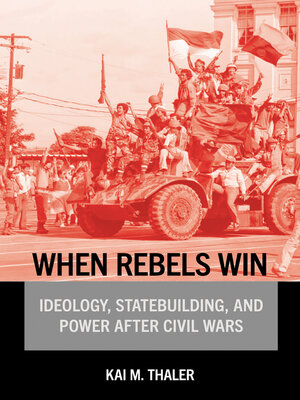
Sign up to save your library
With an OverDrive account, you can save your favorite libraries for at-a-glance information about availability. Find out more about OverDrive accounts.
Find this title in Libby, the library reading app by OverDrive.



Search for a digital library with this title
Title found at these libraries:
| Library Name | Distance |
|---|---|
| Loading... |
In When Rebels Win, Kai M. Thaler explores why victorious rebel groups govern in strikingly different ways.
Many assume civil wars destroy state capacity. In the Democratic Republic of Congo and Libya, for instance, victorious rebels perpetuated state weaknesses. Yet elsewhere, like in China and Rwanda, they built strong, capable states.
Kai M. Thaler argues that, to explain post-victory governance, we must look at rebel group ideologies: the ideas and goals around which a group is formed. Where a group's ideology falls along two key dimensions—programmatic versus opportunistic, inclusive versus exclusive—influences how it governs. Programmatic-inclusive groups seek to reach across territory and work with populations to implement goals, building the state to try to transform society. Opportunistic-exclusive groups, by contrast, prioritize personalized power and private wealth, neglecting statebuilding.
With rich evidence from Africa, Latin America, and Asia, When Rebels Win rethinks accounts of rebel behavior and post-war governance emphasizing factors such as resource availability or international intervention. Wartime rebel ideology, Thaler demonstrates, is not just "cheap talk"—and civil war can, counterintuitively, lead to stronger states.







